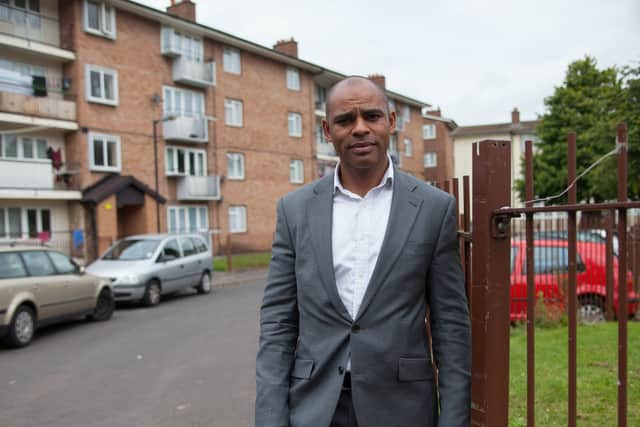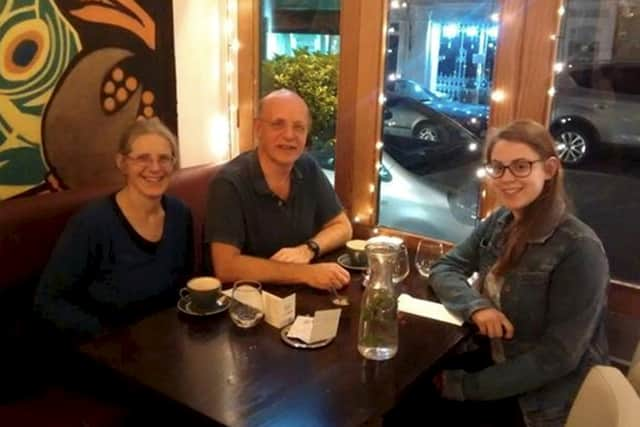Bristol’s universities reveal number of student suicides since 2018 - special report
This article contains affiliate links. We may earn a small commission on items purchased through this article, but that does not affect our editorial judgement.
and live on Freeview channel 276
A BristolWorld investigation into university suicides in Bristol has found 19 students took their own life over the past five years - and that more needs to be done to protect those in higher education.
Figures obtained through Freedom of Information (FOI) Act requests show the University of Bristol recorded 14 students suicides since 2018, and the University of the West of England (UWE) recorded five.
Advertisement
Hide AdAdvertisement
Hide AdRates of suicide amongst the student population are much lower than the general population, according to Office of National Statistics research in 2018, due to be updated tomorrow (May 31).
However, student suicides at universities have come back into the spotlight after a judge ruled that failures by the University of Bristol had led to the death of student Natasha Abrahart, who took her own life in 2018.
And groups and community leaders have since told us more work on prevention is needed.
In a week-long focus starting today, we will show the extent of student suicides through data and indepth reports on each of the city’s two universities, showing the work being done and the challenges faced.
Advertisement
Hide AdAdvertisement
Hide AdWe will also be running an exclusive interview with Natasha’s parents, Robert and Margaret, and have put questions to MPs, city leaders, charities, the region’s mental health partnership and the city’s student union.
Taking guidance from the Samaritans, we will avoid dramatic or emotive reporting and images as part of our coverage. And we will highlight sources of support so people can seek help as often as we can.
When life is difficult, Samaritans are here – day or night, 365 days a year. You can call them for free on 116 123, email them at [email protected], or visit www.samaritans.org to find your nearest branch.
Student suicides in Bristol
From between 2018 and 2022 to date, both University of Bristol and UWE were asked how many student deaths had been recorded as suicide by a coroner in FOI requests. Both responded with information.
Advertisement
Hide AdAdvertisement
Hide AdUniversity of Bristol said there were 14 in total - seven in 2018, two in 2019, two in 2020 and three in 2021. However, the university said that the cause of death was not always formally recorded, and unless it was notified by the coroner, a death may not be included.
This could raise questions on whether universities can see if their support services are adequate - but the Ministry of Justice said coroners were ‘already obliged to issue a Prevention of Future Deaths report if they identify any circumstances that need addressing’.
“This report is sent to anyone involved that could take appropriate action, including universities,” a spokesperson said.
The University of West of England recorded five ‘confirmed suicides’ among students; one in each of 2018, 2019 and 2020, and two in 2021.
Advertisement
Hide AdAdvertisement
Hide AdBoth universities had recorded no student suicides this year.
Loading....
Support for students at university
Both universities agreed to interviews on the back of the FOI responses. Without commenting on individual cases or finding links between the ‘relatively low’ numbers, they outlined the support currently provided students.
At the University of Bristol, a ‘single point of access’ has been set up for support services and there is an open channel for quick referral to Avon and Wiltshire Mental Health Partnership (AWP) for a suicidal student.
The university also operates a 24-hour suicide prevention service, and offers ‘same day’ mental health appointments. Last year, 8,000 students used its Wellbeing Access team.
Advertisement
Hide AdAdvertisement
Hide AdAt the University of the West of England, staff not necessarily associated with student mental health support such as cleaners and security guards undergo special training so they know what to do should a suicidal student open up to them.
AWP said it was continuing to work closely with universities to ‘bridge the gap between primary and secondary care to ensure students get access to the right services at the right time’.


The group is also encouraging more people to get training through its Zero Suicide Alliance programme, and said: “We can all play out part in reducing suicide.”
It added: “If we are going to reduce the number of people taking their own lives this requires a grassroots approach as well as support from organisations like universities, colleges and the NHS.”
More we could be doing
Advertisement
Hide AdAdvertisement
Hide AdBristol Students Union said mental health and wellbeing was a team priority, and pointed toward a campaign called Dare to Care which encouraged staff and students to complete online training on suicide prevention.
Student living officer, Ruth Day, said: “Asking members of our community to take this training is just the start of what should be an ongoing and open conversation about suicide prevention at Bristol, and I’m committed to hearing from students about what we can do better.”
But she added: “Sadly, the Higher Education sector continues to face a mental health crisis so it is vital that we continue to improve our provision. Whilst there is a lot we have achieved, there is always more that we could be doing around suicide prevention.”
Meanwhile, Universities UK, which represents universities in the UK, said urgent additional mental health funding was needed for universities and more ‘student-facing’ NHS services.
Advertisement
Hide AdAdvertisement
Hide AdThe organisation said universities should be mentally healthy places to live, work and study - however, an increase in young adults experiencing mental health difficulties had placed a strain on student support services.
’Missed opportunities for early intervention’
Mayor of Bristol Marvin Rees, who worked in the mental health sector before taking up his role at Bristol City Council, said not enough was being done to reduce rates of suicides at Bristol’s universities.
He wants more investment into wider mental health. He also said public health interventions need to begin from an early age, adding that missed opportunities ‘happen all the time’.


He said: “Do I think enough is being done? No, because you can’t do it without money. But are we doing all we can? I would say we’re nearly there. We can always tap into more, and we can always be better coordinated.”
Advertisement
Hide AdAdvertisement
Hide AdHe added: “It’s difficult for universities because the pathway to mental health doesn’t start at 18 or 19 when students arrive at university.
“The resilience that we build up in our mental health starts very young, actually pre-birth according to the public health model, otherwise you are slowly dismantled as you go through life if you don’t get that support.
“By the time students get to university, there’s already a vulnerability there - leaving home, living in halls, social pressure, academic pressure - they can all be landed on top of existing fragilities.”
Call for Government action
Bristol East MP Kerry McCarthy has been raising the issue of student suicide in Parliament and recently secured a debate for June 8 called Government Action on Suicide Prevention.
Advertisement
Hide AdAdvertisement
Hide Ad“Each young life lost to suicide is one too many. We need to become much better at identifying when – and why – students are struggling with their mental health and making sure the right help is available when they need it,” she said.
“With one in six children having a probable mental health disorder, and one in six 17-19 year olds too, the time to act is when they first start experiencing problems, not when they reach crisis point.
“I know there is some very good work being done within universities and by those involved in delivering mental health services and support, but with so many young people tragically choosing to take their own lives, it’s clear that this needs to be more of a priority for the Government and I will continue pushing for more support.”
Missed opportunities for learning
Robert and Margaret Abrahart, the parents of University of Bristol student Natasha Abrahart who took her own life in 2018, are calling on the Government to define the grey area of ‘duty of care’ in order to combat student suicide.


Advertisement
Hide AdAdvertisement
Hide AdThe Abraharts also argue that some universities fail to share information not just internally but amongst themselves following the death of a student, nor do they ‘properly investigate’ such deaths.
This creates ‘missed opportunities for learning’ that ‘could lead to further loss of life’.
Read an interview with the couple - covering their daughter’s death, the civil case and what they want to see happen next - in the next installment of the week-long series of stoires focusing on student suicides tomorrow on BristolWorld.
Help is available for anyone affected by this issue. Papyrus offers support and advice to young people up to 35 years. Contact Papyrus HopelineUK on 0800 068 4141, text 07860 039967 or email [email protected].
You can also call the Samaritans for free on 116 123, email them at [email protected], or visit samaritans.org to find your nearest branch.
Comment Guidelines
National World encourages reader discussion on our stories. User feedback, insights and back-and-forth exchanges add a rich layer of context to reporting. Please review our Community Guidelines before commenting.
